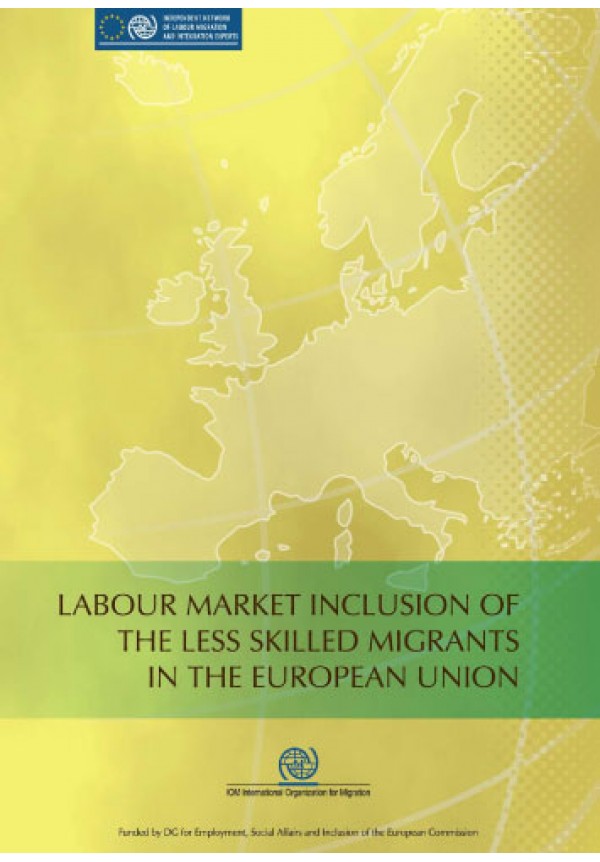
21 sep 2015
Labour Market Inclusion of the Less Skilled Migrants in the European Union
IOM LINET study Labour Market Inclusion of the Less Skilled Migrants in the European Union draws attention to the categories of migrant workers, namely those with low and medium skill levels that are often treated differently from the highly skilled by the national and the EU immigration policies. Labour immigration debate in Europe in the recent years has mainly focused on the need to attract more highly skilled migrants from outside the European Union to boost competitiveness by increasing the talent pool. On the contrary, less skilled migrants have seen the few existing entry doors often being shut, and those already in the EU are portrayed as a societal burden in the popular discourse. At the same time, the actual labour market demand may suggest the need to consider immigration at all skill levels, temporary or permanent, to support the economic recovery.
The study attempts to identify the relevant labour market integration challenges and patterns for the less skilled migrants. It also maps and assesses selected policy measures in various fields attempting to regulate migration and to support integration of these migrants.
Read More
- Overview of Findings
- Introduction
- Defining Low and Skilled Migrants
- Labour Market Context
- Characteristics of Migrant Population
- Policy Framework
- Concluding Considerations
- References
- Case Studies
- Methodological Note
- Subsidized Immigrant Employment in Denmark
- Developing Comprehensive Mechanisms for Labour Immigration: MATTO Program in Finland
- Germany: Stakeholder Cooperation for Vocational Training in Frankfurt
- Simplification of Employment of Foreign Workers in Poland and the Case of Wroclaw
- National Network of Employment Support Offices: GIP IMIGRANTE in Portugal
- Romania: Exploitation Migrant Workers and Initiatives to Protect Their Rights